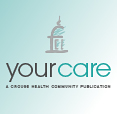Breast Cancer Risk Factors
Most women who have one or more breast cancer risk factors never develop breast cancer, while many with breast cancer have no known risk factors (other than being a woman and growing older).
The best offense is to become aware of risk factors, modify any lifestyle choices that may increase your risk and having regular breast examinations and mammograms. Additional screening based on your medical history may be recommended. Ask your doctor for guidance.
Common Breast Cancer Risk Factors
Proper screening is, therefore, important for everyone, regardless of the presence of these risk factors. Additional screening based on your medical history may be recommended. Consult your doctor for guidance on screening and your individual risk factors.
Being a Woman
Simply being a woman is the main risk factor for breast cancer. Men can have breast cancer, too, but the disease is about 100 times more common in women.
Age
With age, risk increases. About 75% of breast cancers are diagnosed in women over the age of 50.
Certain Inherited Genes
About five to 10 percent of breast cancer cases are thought to be hereditary, passed on from a parent. Ask your doctor about your risk and any potential need for genetic testing.
Having a Family History of Breast Cancer
About eight out of 10 who get breast cancer do not have a family history of the disease, but women who have close blood relatives with breast cancer have a higher risk of the disease.
Personal History of Breast Cancer
A woman with cancer in one breast has a higher risk of developing a new cancer in the other breast or in another part of the same breast. (This is different from a recurrence or return of the first cancer.)
Race and Ethnicity
Overall, Caucasian women are slightly more likely to develop breast cancer than African-American women, however, in women under 45 years of age, breast cancer is more common in African-Americans. Asian, Hispanic, and Native American women have a lower risk of developing and dying from breast cancer.
Certain Benign Breast Conditions
Women diagnosed with certain non-cancerous breast conditions may have a higher risk of breast cancer.
Menstruation Cycle
Women who have had more menstrual cycles because they started menstruating early (before age 12) or started menopause later (after age 55) have a slightly higher risk of breast cancer.
Check Radiation
Women who as children or young adults were treated with radiation therapy to the chest for another cancer have a significantly higher risk for breast cancer. Radiation treatment after age 40 does not seem to increase breast cancer risk.
Exposure to Diethylstilbestrol (DES)
From the 1940s through the early 1970s some pregnant women were given an estrogen-like drug called DES because it was thought to lower their chances of miscarriage. These women have a slightly increased risk of developing breast cancer, as do women whose mothers took DES.
Breast Cancer Lifestyle Risk Factors
Certain breast cancer risk factors are related to personal behaviors, such as diet and exercise, or decisions about having children and taking birth control.
Drinking Alcohol
Drinking alcohol is clearly linked to an increased risk of developing breast cancer, and increases with the amount of alcohol consumed.
Being Overweight or Obese
Being overweight or obese after menopause increases breast cancer risk.
Physical Activity
Evidence is growing that exercise reduces breast cancer risk. Get moving!
Having Children
Women who have not had children or who had their first child after age 30 have a slightly higher breast cancer risk overall.
Birth Control and Hormone Therapy
The risk for developing breast cancer may increase with the use of forms of birth control and/or hormone replacement therapy. Review the pros and cons of their use, weighed against the benefits, given your individual situation.


